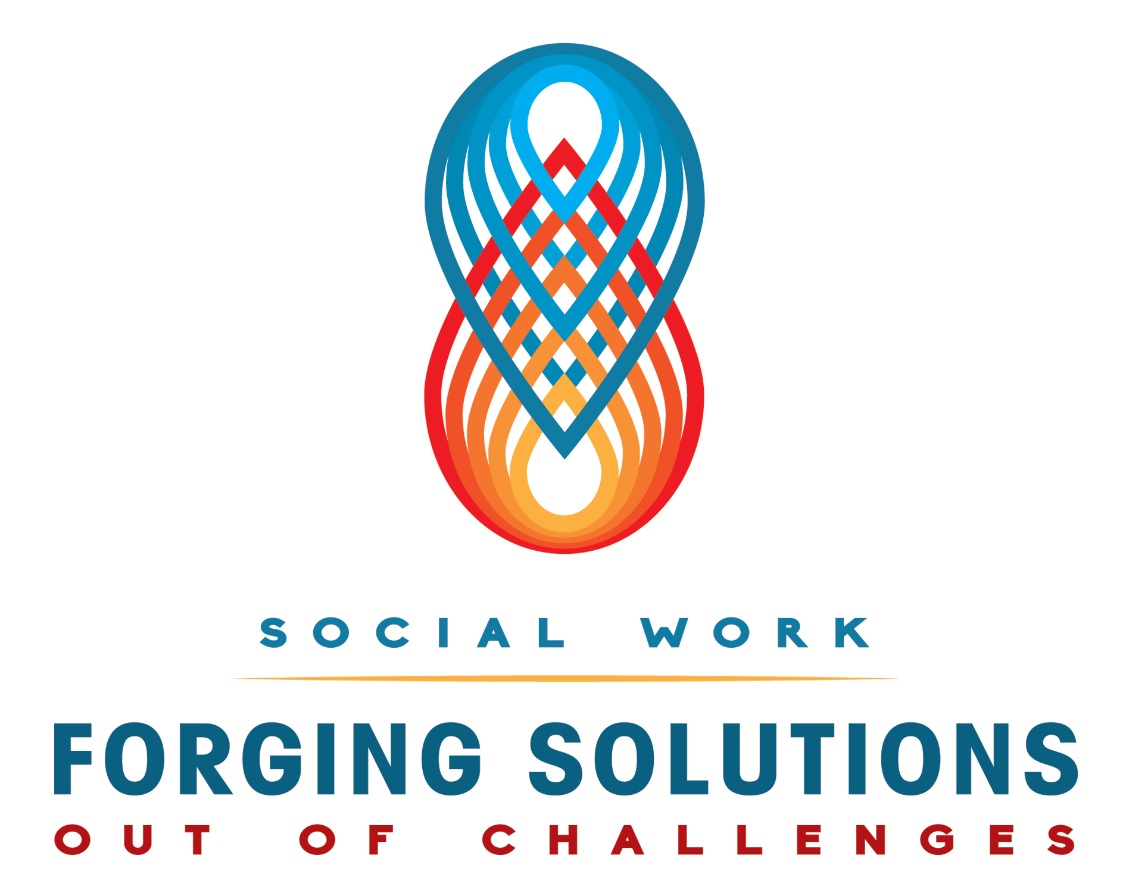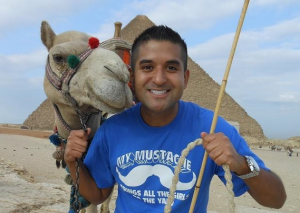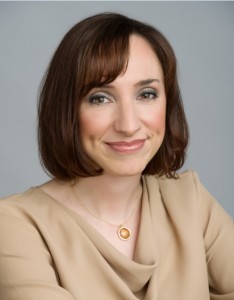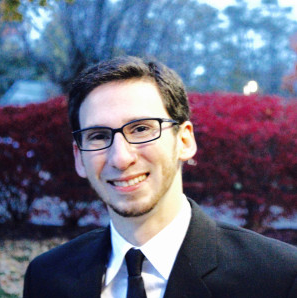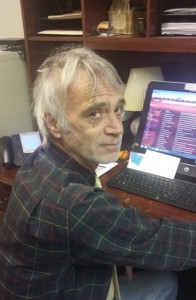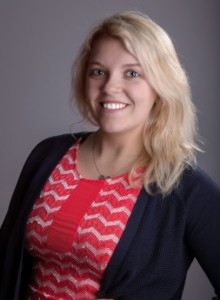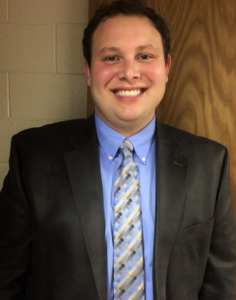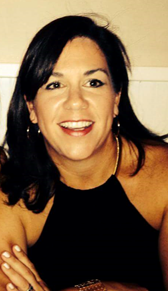To honor National Social Work Month and the 55th Anniversary of the National Association of Social Workers Code of Ethics, we asked social workers to submit essays on how what the code means in their daily work life.
The essays also reflect this year’s National Social Work Month theme “Forging Solutions Out of Challenges.”
The entries are below.
Code of Ethics has enabled me to respect each individual and be mindful of differences
By Raymond Gonzales
Growing up in a traditional Latino household, my mother would always tell me two things in Spanish every night. First, she would say she loved me. Second, she would also tell me to remember to help someone tomorrow no matter how I felt about them. It was her ethical guidance that led me to become a social worker today. If it was the classroom bully or the kid being bullied, I tried to help in any manner. My core set of values developed from my mother’s simple bedtime phrase and it was just the start of my social work endeavors.
The Code of Ethics is something embedded in my head that helps influence my behavior when working with clients and families. I critically think about ways to address social problems and act on them to create a better outcome. Whether it is lobbying on Capitol Hill for patient’s rights or promoting sensitivity to current immigration legislation, I am using the Code of Ethics to challenge social injustice. I create open spaces for people to talk about what is on their mind and how to come to a resolution.
Becoming a social worker and using the Code of Ethics daily helps me recognize what matters in the lives of my patients and families.
If each client and family were the same with similar needs to be addressed, my job would be easy. As every social worker knows, this is not the case. The Code of Ethics has enabled me respect each individual and be mindful of their differences. If a patient wants to pursue treatment for an aggressive end-stage cancer, I will be there for them to process their thoughts and wishes. On the other hand, if my patient is done with treatment and wants to just live their final months happy with their family at home, they can count on me to guide them.
Becoming a social worker and using the Code of Ethics daily helps me recognize what matters in the lives of my patients and families. It is the relationships built that fosters their overall well-being. More importantly, it is my awareness that being honest to everyone involved instills trust. By being trustworthy, my patients and clients know they can rely on me for small problems or huge dilemmas that can hinder their progress. As I enhance my competence in medical social work, I can reflect back realizing the code of the ethics has made a positive influence on my career.
Raymond Gonzales is a Medical Social Worker intern at Hope Hospice in Dublin, California. Currently, he is finishing his last semester at the University of Southern California graduating in May with a Master’s Degree in Social Work. When he is not studying, writing papers or working on a busy Medical-Surgical Nursing unit, Raymond likes to practice self-care by running marathons, traveling the world and eating tacos.
The Greater Good
By Sherry Saturno
As social workers, our ethics follow us everywhere, stare back at us from our mirrors each morning, and create holes in the ground we walk upon if we are not careful.
The Code of Ethics after 55 years remains the principal tool in making a difference in a client’s life. It empowers us with the strength to advocate for the oppressed and emboldens us with the courage to speak for the voiceless.
Ethics are bigger than all of us and yet remain unseen.
The Code of Ethics has lent instrumental guidance when I was faced with controversy surrounding terminal patients’ rights to decide how they want to plan for the end of their lives.
Ethics are bigger than all of us and yet remain unseen.
They are reflected in the corridors of nursing homes and in the hallways of intensive care units at hospitals.
In working with patients who are dying, ethics become razor sharp. The dignity and worth of each individual is an incontrovertible fact.
Our ethics shape making informed decisions and affording clients as much control as possible in difficult health care situations. That includes authority over pain, over family involvement, and over medical treatment.
Our ethics enable us to see through our clients’ eyes and gain their perspective. Ethics take the shape of the young and the old, the sick and the dying. There is nothing more important, and nothing that would more consequential to lose.
Sherry Saturno, LCSW, DCSW specializes in health care and has administrative experience in nursing homes and hospitals. She is also a District Leader (D-Tarrytown) in Westchester County, NY. Sherry is a Diplomate in Clinical Social Work, holds a M.S.W. from Columbia University School of Social Work, a M.S. in Criminal Justice from Long Island University School of Management and Public Service, and completed a national Palliative and End of Life Care Fellowship at New York University Silver School of Social Work. Sherry is a Stanford Certified Project Manager and completed a certification in Aging Studies at Boston University’s Center for Aging, Disability Education, and Research. She wrote and produced a short educational film “Human Investment”, and was awarded Social Worker of the Year for the State of New York as well as Westchester County by the National Association of Social Workers.
Code of Ethics helps us navigate our way to self-awareness
By Sam Sobel
“Service, social justice, dignity and worth of the person, importance of human relationships, integrity, competence. This constellation of core values reflects what is unique to the social work profession” (excerpt from The NASW Code of Ethics).
Who amongst us has not looked up at the sky and wondered about our place and station in the world: The world and all of its people, looking up at the same sky, the very same constellations, each day, each year? The continued dual experience of external and internal environments: All of us, trying our best, celebrating the things worth celebrating and navigating as skillfully as we can the challenges of the day.
Its bright light reflects off of the water, providing guidance for safe passage, allowing us to better view the archipelago of our clients’ goals.
No one is exempt from this journey: In our pursuits, formulating and making connections to the world around us and its people, the end result being a unique pattern of individual connections. Over time these patterns become identifiable as we look up at the night skies of ourselves: Constellations projected upon the ceilings of our rooms that move and sometimes change shape like clouds.
Many of us possess the knowledge that due to the myriad of factors outside our locus of control, that indeed the only constant is change. And yet this knowledge is more a harbor than a compass. The above excerpt from the Code of Ethics (and the document as a whole) provides the paramount tool for navigation: It is the map we pull out of our pockets and unfold to locate the North Star, Polaris, whose place in the sky remains fixed as the Earth rotates.
Its bright light reflects off of the water, providing guidance for safe passage, allowing us to better view the archipelago of our clients’ goals.
The Code of Ethics continues to have a profound, positive impact on my career. It is what I first equip myself with to objectively explore beneath an individual’s waves of symptoms: The scuba gear utilized to mindfully traverse the depths as weighty subjects are brought to the surface. In addition, The Code reminds me that the onus is rightfully on the clinician to foster a therapeutic environment conducive to travel. But perhaps most personally meaningful, is how it so effectively endorses honoring my clients’ bravery.
The challenges of the day often say that the earth is flat. Yet daily I witness the courage of my clients to embark past the horizon line anyway. The code’s core values serve as a constant reminder. More than just a string tied around my finger: Three hundred and sixty degrees of interconnected waters. We should all be so skillful and lucky to be able to sail away from and smile while the light pollution dims, the cities of our symptoms, to see and look up at the sky and dream. We are all sailors with the same goal: To reach the shores of self-actualization.
Sam Sobel attended the University of New Hampshire in Durham for both his undergraduate as well as graduate degrees in Social Work. Sam has worked in a variety of settings including direct practice outpatient, school, as well as substance treatment. Sam spent his post-graduate work at The Mental Health Center of Greater Manchester in Manchester, NH. There, Sam provided direct practice therapy, case management, as well as diagnostic assessment and referral for adults. Sam has helped clients address a variety of challenges including adjustment issues, anxiety, depression, interpersonal issues, substance use, regulation/reactivity of mood, as well as challenges with psychosis. Sam continues to provide therapy services to adults via his practice in Dover, NH.
The Code of Ethics reminds me why my job is so important
By Tricia Cubitt
By My first encounter with a social worker was when I was 12 and diagnosed with a genetic condition called Turners Syndrome.
All I can remember about this interaction was her compassion and attempt at making me feel as though I was going to be okay and that I was not alone.
As I entered into the social work field as an adult my understanding still of what social workers did was heal people and work with them through some of the hardest times in their lives.
The Code of Ethics has been that guide and reinforcement for me that if I follow it then, yes I am doing what I am called to do as a social worker and doing it in a manner that it was intended.
Enter the NASW Code of Ethics — I think it was my first week of graduate school. This code has given me the direction that I need to guide my interactions with my clients, especially in times when I am at a loss as to where to go next with their care or my ability to help them.
I have found myself at times wondering if I am doing the absolute best that I can in my social work practice and if my actions are really benefiting my clients. The Code of Ethics has been that guide and reinforcement for me that if I follow it then, yes I am doing what I am called to do as a social worker and doing it in a manner that it was intended.
The Code of Ethics has been that sounding board that I need to remind me on those difficult days where I feel as though my job is not all that important to the clients that I serve or that the low pay and long hours are not what I signed up for.
I look at this Code and am reminded as to why I become a social worker and that is to be a SERVANT to others who have nothing and need that advocacy to help them through this time in their life; for SOCIAL JUSTICE where at times there seems to be none and no one else to say “this isn’t okay”; for the DIGNITY AND WORTH of every human because everyone deserves to have their basic needs met and given some form of direction in their life and show compassion to those who have never been shown this before and recognize the IMPORTANCE OF HUMAN RELATIONSHIPS; to always carry myself with professionalism and INTEGRITY and to continually be learning and educating myself in best practice standards through COMPETENT practice.
To say that the Code of Ethics has been influential in my practice as a social worker would be an understatement it has not only kept me grounded as a social worker but it has keep me motivated and directed and shown me why I became a social worker and what I love about being one.
Tricia Cubitt earned a master’s degree in social work in 2012 and became a licensed clinical social worker in October 2015. She is working toward certification in Eye Movement Desensitization and Reprocessing (EMDR) therapy. Cubitt’s professional interests are adult mental health, particularly personality disorders. She has wanted to be a social worker since she was 12 years old and says she love’s every minute of being a social worker.
Code of Ethics: The illuminated pathway
By Gerald Eckert
The Code of Ethics guides me to identify obstacles that require advocacy to bring social justice for all people, ensure equal access to resources, and prevent discrimination against any group of people.
The code has been my guide to promote social justice, bring change for the client, enhance well-being, obtain basic needs for all people, and promote the well-being of clients.
The positives are numerous: my understanding of cultures, differences among people, and, most importantly, the nature of diversity and oppression. I can better recognize that all people can teach and influence others and communities to better their environment.
I work with grandparents raising grandchildren. These families work through the economic problems and stressors without the assistance of government. Grandparent families are a minority and many organizations have not found ways to assist with their special needs. It is my privilege to assist through a grant tailor-made for all grandparent families, both with and without formal custody.
The positives are numerous: my understanding of cultures, differences among people, and, most importantly, the nature of diversity and oppression. I can better recognize that all people can teach and influence others and communities to better their environment.
The Code of Ethics has helped me to clearly see that the grandparents are teaching and influencing others with their commitment to family, yet have little access to resources afforded to the traditional and foster families. I have been able to procure organizations to work with me through the grant to bring the needed change for the clients and enhance the well-being for the clients and their families.
Each section of the code begins with “A social worker should.” I believe to ensure the highest integrity for clients “a social worker must.” They must follow their hearts and work with the population, the group each truly wishes to work with. I do this when assisting the grandparent families. Each family brings a new challenge, a new perspective, and each needs advocacy for social and economic justice.
The Code of Ethics is my road map. It allows me to assist those having problems with the highest standards and it steers me to show each client the different paths they may take to reach the better future they seek.
I have followed my heart, taken the path I wished. I am not merely working I am enhancing the lives of the grandparents and their families.
The Code of Ethics points me in the correct direction, allowing me to support each client to the fullest with the empathy, sympathy, and compassion they need.
Gerald Eckert loves working with grandparents who are raising grandchildren. He started at the University of Tennessee Chattanooga writing research papers on the subject and knew that would be his calling. He has been lucky to work with several organizations through a grant to assist grandparent families with housing.
The Code of Ethics makes me strive to be better person, social worker
By Baliegh Jene Cannistraci
The Code of Ethics has made a positive influence on my career choice for many reasons.
I thought of the following after realizing the importance of human relationships, completing endless hours of service, using integrity daily, challenging social injustice, giving each person a feeling of dignity and worth, and striving to be competent every day.
Each day I strive to be a better person because of the Code of Ethics. I continuously am doing community service because I believe it makes the world a better place one step at a time.
Working with the homeless has taught me that giving each person the feeling of dignity and worth makes each person feel worthy of their life. I enjoy working with the homeless because they are so appreciative of the service you are offering them and that makes the work that much more rewarding, even if it is just offering them sandwiches.
Each day I strive to be a better person because of the Code of Ethics. I continuously am doing community service because I believe it makes the world a better place one step at a time.
Each person deserves to have an equal opportunity in this world and that is why challenging social injustice as a future social worker is important. Advocating for those who cannot advocate for themselves is a passion of mine and I cannot wait to have a future career in doing this.
Realizing the importance of human relationships has had a positive influence in my life because without relationships I would not have connections and without connections I may have not had chosen this career path.
Integrity is something positive to me because not every profession demonstrates integrity and in this profession it is demonstrated day after day which I find highly essential.
The competence portion of the Code of Ethics has dramatically had a positive influence in my career because of attending the Pennsylvania Association of Undergraduate Social Work Education (PAUSWE) Conference and having to give a presentation on Civic Engagement to other university students about what Lock Haven Universities Social Work Club had to offer.
I learned a lot about the profession at this conference and I am attending another conference coming up in which I am enthusiastic to learn even more about my future career. I am very thrilled to have had the experience to learn more and to also give strategic methods on how to work as a board to other university boards.
I have had the most positive influence on my career choice because of the Code of Ethics and am very eager to keep giving all I have to the major and keep receiving knowledge as I go to be the best social worker I can possibly be.
Baliegh is a senior at Lock Haven University majoring in Social Work. She is looking to do a field placement in fall 2016 in Pittsburgh PA. She would like a career working with the elderly. “I would love to work to change the lives of the elderly because they are respectable citizens of our nation and deserve to be cared for as they age. They melt my heart along with other passions of mine but this a very big passion of mine,” she said. Baliegh will graduate from Lock Haven University in December 2016 and is looking forward to attending the University of Pittsburgh fall 2017 for her master’s degree.
Code has ensured I serve clients with empathy, dignity
By Joseph Newton
Nearly 55 years ago the National Association of Social Workers (NASW) adopted the Code of Ethics for every social worker to follow and uphold.
Since that time society and the world has changed, as well as the social work profession. However, the Code of Ethics have held strong and served as the guiding light illuminating the path for each of us as social workers to follow.
I use this code each day to give me strength to stand up for those unable to stand, to be a shield for those who have been targeted by injustice and to open closed minds to those of other cultures, beliefs and ethnicities.
This code reminds us, as social workers that we have an obligation to our clients; those who are oppressed and vulnerable and that obligation is to promote cultural and ethnic diversity, to strive to end discrimination, oppression, poverty, and any forms of social injustice.
Since graduating with a Masters of Social Work in 2014, I have held a career in Social Services as a Child Protective Services Social Worker. Each day myself and my co-workers are met, face to face, with a multitude of cases ranging in allegations, cultures and social injustices and by remembering and embracing the Code of Ethics and the seven guiding principles I know without a doubt that our clients are met with empathy and treated with dignity.
As a new social worker the Code of Ethics has guided me and prepared me for a career that I truly enjoy. I use this code each day to give me strength to stand up for those unable to stand, to be a shield for those who have been targeted by injustice and to open closed minds to those of other cultures, beliefs and ethnicities.
Joseph Newton is from a small town in Cleveland County, North Carolina. After high school he worked as a nurses aid for Hospice of Cleveland County working with clients with terminal diagnoses and their families. While employed with Hospice he worked with several programs such as Hospice Home Health, Crisis Care and the residential facility. It is at Hospice that Newton was first introduced to true social work. He changed majors from nursing to social work within a year. He completed the bachelor’s program at Appalachian State University where he was introduced to child welfare and it was an instant match. Newton completed the MSW Program at Appalachian State University as a North Carolina Child Welfare Scholar in 2014. Since that time he has been happily employed at the Cleveland County Department of Social Services as a Child Protective Services Family Assessor and Investigator.
Ethics Means I am Social Work
By Ana Varona, MSW, CCM
Ethics has meant not wanting to run out the door at my job because I know my patients needs me more than taking the time for myself.
Ethics means knowing that I need to finish the case despite the constraints of paperwork and family obligation.
Ethics means that even when I’m tired or hungry, I am reminded that someone else could be worse off than myself and I keep on going to help serve them.
Ethics means that no matter what, even when the answer is no; I continue to look for alternatives and I don’t give up.
Ethics means I am a Social Work. It is who I am, not what I do.
Ethics means understanding and knowing the difference between” it’s time to let go” and “I need more time”.
Ethics also means that sometimes letting go of a patient can be a very humbling experience.
Ethics means people will either love you or hate you but in the end people are just scared and they need me; And I stay to walk them through the crisis.
Ethics means that I understand it is okay to cry often, laugh inappropriately, and scream occasionally.
Often times my job carries a great deal of responsibility with little respect and pay but ethics means I do this despite this.
Often times the barriers are fixed and recognition is not given, but ethics stipulates I have done my best.
In the end, Ethics is what I have that makes me proud of my profession and I believe paves the way for future challenges faced.
Ethics means I am a Social Work. It is who I am, not what I do.
Ana Varona has more than 20 years experience in the health care industry. Her extensive resume includes working in the hospital setting ranging from rehab to step down unit to mental health arenas. Ana has worked for one of Florida’s leading health plans in Case Management for more than five years where she is currently a supervisor. She is a Certified Case Manager and registered intern LCSW. Ana received her Masters and Bachelors in Social Work from Florida State University in Tallahassee, FL. She is married and has three energetic sons.
The Code of Ethics is not just for social workers, but all acts of social work
By Lily Roberts
In a class exercise on the NASW Code of Ethics, I heard about the ethical dilemmas my classmates had faced: a client who misrepresented her earnings to procure a child care voucher after her trusted babysitter moved away, a co-worker who sometimes forgot to document supervision. At first, I thought I had nothing to contribute to the discussion of how ethics play out in the social work profession.
I often felt out of place in my classes during that first year of my MSW. I work in social policy evaluation – I don’t work with clients, I don’t advocate for a particular social justice-related goal, and I don’t even work at a think tank that comes up with grand new ideas to solve society’s problems.
In reading its Preamble, I realized that I had been thinking about the Code of Ethics as applying only to people who are social workers. In reality, the Code is framed around acts of social work.
While my classmates ensure the safety of children, organize their communities to access the right to vote, or help their neighbors find employment after prison, I build huge Excel spreadsheets and write memos to the federal government about whether changes in policy were successful. I review literature and evaluate the programs where social workers practice. It has been difficult, at times, to frame my work as “social work” at all.
I decided to get an MSW because I knew that it would reframe my day job. The dilemma I ultimately chose to discuss in class was the larger ethical dilemma I’ve always faced: am I working on the project or in the job that will have the most impact on the world? By learning more about the lives of the people who are impacted by the policies I evaluate, I knew I could make a more informed choice about the most effective way to contribute to change.
In reading its Preamble, I realized that I had been thinking about the Code of Ethics as applying only to people who are social workers. In reality, the Code is framed around acts of social work. The Code of Ethics’ Preamble specifically includes policy development, research, and evaluation as acts that are just as much “social work” as direct practice or advocacy.
The ideals and values that underpin the NASW Code of Ethics do not solely apply to the isolated decisions practitioners make while working with clients, then. They must also guide the ways in which we choose to practice and understand “social work.” Understanding my own work through the lens of social work ethics reminds me of the real people whose lives are affected by policy decisions every day. I share the ethical obligation to serve others with my classmates, no matter the acts of social work we prioritize in our careers.
My job is to investigate and prove what works. The obligations of competence and commitment to clients depend on the researchers and evaluators who determine what it means to provide an effective service. If social workers have an ethical obligation to stay apprised of the best and most effective social work practices, then someone must have an ethical obligation to create that knowledge.
Lily Roberts works in social policy research and evaluation at Mathematica Policy Research, focusing on two-generation approaches to poverty and a national evaluation of parenting and relationship education programs. She is a second-year student in the Masters in Social Administration program at Case Western Reserve University, specializing in Community Practice for Social Change.

